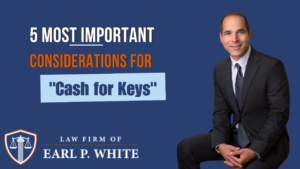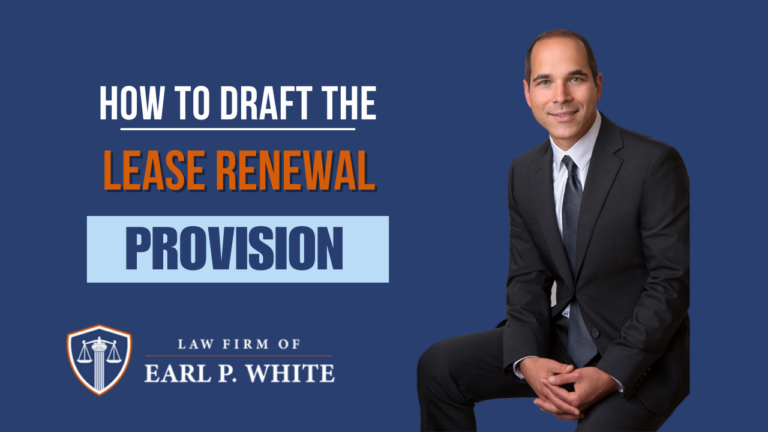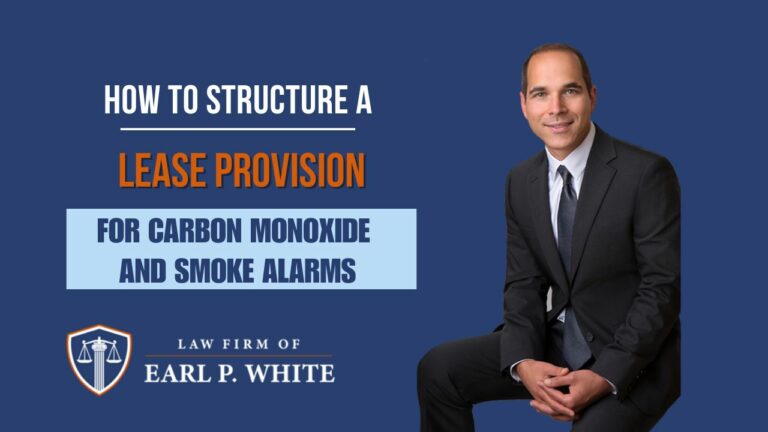Discourage litigation. Persuade your neighbors to compromise whenever you can. Point out to them how the nominal winner is often the real loser-in fees, expenses, and waste of time.
Abraham Lincoln (1850); Notes for a Law Lecture, Collected Works of Abraham Lincoln.
“Cash for Keys” is an agreement where a landlord offers a tenant money to voluntarily vacate a rental property.
Cash for keys is often an alternative to eviction to avoid court costs, legal fees, and delays. These arrangements also may also serve as an incentive to have a probelmatic tenant vacate that otherwise was within their rights to stay in the premises.
Here are the five most important factors landlords must consider before entering into a Cash for Keys agreement.
Put It in Writing—Always
Landlords must ensure all cash for keys agreements are written. Reliance on oral agreements or conduct of the parties is a risky because, even if a tenant leaves and the premises with their belongings, without a written agreement:
- A tenant could later claim they never agreed to surrender the unit.
- Courts have no written evidence as to the agreed upon terms, so any disputes will be resolved in the judge/jury’s witness credibility determination.
- There may be a legitimate misunderstanding of the material terms of the cash for keys arrangement.
The agreement should be signed by both the landlord and tenant, and if the tenant is problematic, consider having the agreement notarized to add a layer of verification.
Clearly Terminate the Tenancy
The agreement must explicitly terminate the lease. Vague language like “tenant agrees to vacate” is not enough.
Include:
- The names of the parties on the lease.
- The lease start date.
- A statement that the lease is fully and mutually terminated.
- Specific reference to the original lease (if written).
This clarity eliminates ambiguity and ensures the tenancy cannot be revived later.
Condition the Payment on Property Condition
The landlord’s obligation to pay should be conditional, not only on the tenant vacating, but on the tenant delivering the property in satisfactory condition—comparable to how it was when they moved in, minus normal wear and tear.
This clause helps prevent:
- Intentional damage by an upset tenant.
- Disputes over whether payment is still owed.
Here is suggested language:
CONDITIONS PRECEDENT. Payment shall be strictly contingent upon Tenant vacating and surrendering full possession of the Premises on or before the agreed-upon date, in broom-clean condition, free and clear of all personal property, furniture, trash, and debris, and with no damage to the Premises beyond reasonable wear and tear. The Premises must be returned in a rentable condition, with all keys, access devices, garage openers, and security codes returned to Landlord or Landlord’s agent. Landlord reserves the right to inspect the Premises prior to payment to confirm compliance with these conditions.
Plan for Payment Logistics
One of the most sensitive aspects is when and how the money is transferred. Options include:
- Personal Check: Easy for the landlord.
- Cashier’s Check: Tenant sees proof the funds have been issued to their name, but will not receive the cashier’s check until thye vacate.
- Escrow with an Attorney: A trusted third party (like a real estate attorney) can hold the funds and release once the conditions precedent are satisfied.
- Cash at Move-Out: Not advisable for landlords due to lack of documentation.
Landlords must also maintain proof of receipt of any cash-for-keys payments. Documentation, such as a signed receipt, video of the exchange, or copy of the check, protect the landlord by verifying cash was delivered to the tenant.
Each method has pros and cons. Choose the approach that balances trust and protection for both parties.
Know Your Leverage: How Much to Offer
The appropriate amount to offer depends on who has the leverage:
When the Landlord Has Leverage:
- If the tenant is in violation of the lease (nonpayment, breach, illegal activity).
- If the landlord can start an eviction proceeding.
- Legal fees for an eviction are relatively low, so landlords shouldn’t overpay if they have legal remedies.
When the Tenant Has Leverage:
- If the tenant is not in breach and eviction is not an option (e.g., no-cause eviction is prohibited).
- In states like New Jersey, if the building has 4 or more units, landlords can’t evict for owner occupancy.
- In these cases, the tenant may have the legal right to stay indefinitely, which increases their negotiation power.
Typical Cash for Keys Amounts:
- Moving costs + deposit refund.
- First month’s rent elsewhere.
- Additional compensation for quicker move-out or waiver of other rights.
- Forgiveness of overdue rent.
Final Thoughts: Use a Written, Conditional Agreement
To recap, here are the five key points landlords must consider:
- Get it in writing—signed and ideally notarized.
- Terminate the lease explicitly in the agreement.
- Condition payment on proper delivery of the unit.
- Decide how payment will be made—securely and mutually agreed upon.
- Evaluate leverage to determine a fair cash amount.
If you are a landlord or real estate professional considering a Cash for Keys agreement, having a properly drafted document can save you from costly disputes or litigation.
Contact our team for assistance with landlord-tenant matters, including leases, evictions, and preparing Cash for Keys agreements. Fill in the contact form or call (201) 472-0336 to begin.
Stay ahead with our free newsletter: The Real Estate Law Newsletter – your source for real estate law news.
Essential updates and insights direct to you. Impress clients and colleagues with trending news. Sharpen expertise. Stay legally compliant. Access free legal forms. Don’t miss out – join today!








